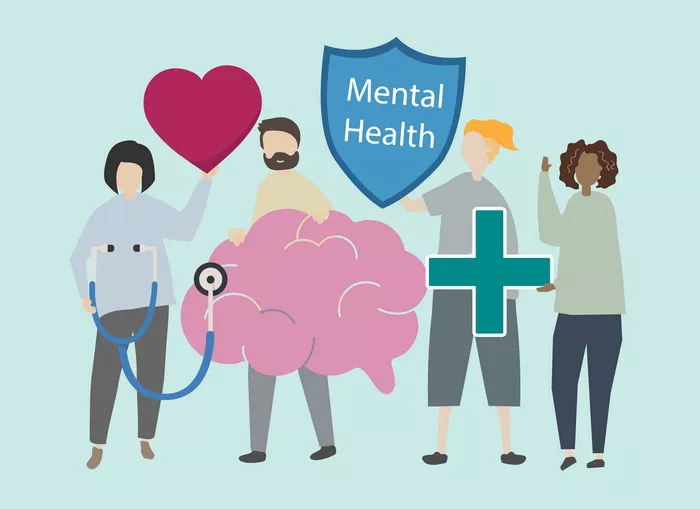Post-Traumatic Stress Disorder (PTSD) is a mental health condition that can develop in individuals who have experienced or witnessed a traumatic event. While PTSD is commonly associated with military combat, it can affect anyone who has experienced trauma, including survivors of natural disasters, accidents, physical or sexual assault, or other life-threatening events. In this article, we’ll delve into the psychological effects of PTSD, exploring the ways in which it can impact an individual’s thoughts, emotions, and behaviors.
Defining PTSD: An Introduction
Before we explore the psychological effects of PTSD, let’s first define the condition itself. PTSD is a psychiatric disorder that can develop following exposure to a traumatic event or series of events that involve actual or threatened death, serious injury, or sexual violence. Symptoms of PTSD can vary in severity and duration, but typically include intrusive thoughts or memories of the traumatic event, avoidance of reminders of the trauma, negative changes in mood and cognition, and heightened arousal or reactivity.
Understanding the Psychological Effects of PTSD
Now, let’s delve into the psychological effects of PTSD and how they can impact individuals who are living with the condition:
1. Intrusive Thoughts and Memories
One of the hallmark symptoms of PTSD is the experience of intrusive thoughts or memories related to the traumatic event. Individuals with PTSD may find themselves repeatedly reliving the traumatic experience through intrusive memories, nightmares, or flashbacks. These intrusive thoughts can be distressing and overwhelming, causing significant emotional distress and interfering with daily functioning.
2. Avoidance Behaviors
In an effort to cope with the distressing symptoms of PTSD, individuals may engage in avoidance behaviors, such as avoiding reminders of the traumatic event or avoiding situations or activities that trigger distressing memories or emotions. While avoidance behaviors may provide temporary relief from distress, they can ultimately exacerbate symptoms of PTSD and interfere with the individual’s ability to fully engage in their daily lives.
3. Negative Changes in Mood and Cognition
PTSD can also lead to negative changes in mood and cognition, including feelings of guilt, shame, or self-blame, difficulty experiencing positive emotions, and distorted beliefs about oneself or the world. Individuals with PTSD may struggle to trust others, feel detached from loved ones, and experience a persistent sense of hopelessness or despair. These negative changes in mood and cognition can significantly impact an individual’s quality of life and contribute to feelings of isolation and loneliness.
4. Hyperarousal and Reactivity
Individuals with PTSD may experience heightened arousal or reactivity, leading to symptoms such as irritability, anger outbursts, difficulty concentrating, hypervigilance, and exaggerated startle responses. These symptoms can make it challenging to relax or feel safe, leading to chronic feelings of tension, anxiety, and distress. Hyperarousal and reactivity can also interfere with sleep, contributing to insomnia and other sleep disturbances.
5. Emotional Numbing and Dissociation
Some individuals with PTSD may experience emotional numbing or dissociation as a way of coping with overwhelming emotions and memories related to the traumatic event. Emotional numbing involves a diminished ability to experience positive emotions or connect with others emotionally, while dissociation involves a disconnection from one’s thoughts, feelings, or sense of identity. These coping mechanisms can provide temporary relief from distress but can also interfere with the individual’s ability to engage fully in their relationships and daily activities.
6. Impaired Functioning and Quality of Life
The psychological effects of PTSD can have a profound impact on an individual’s functioning and quality of life. Symptoms of PTSD can interfere with the individual’s ability to work, maintain relationships, and participate in activities they once enjoyed. They may struggle with feelings of shame, guilt, or worthlessness, and may experience difficulties in social and occupational functioning. Left untreated, PTSD can lead to significant impairment in multiple areas of life and increase the risk of other mental health conditions, such as depression, anxiety, and substance abuse.
7. Increased Risk of Suicidal Ideation and Behavior
Individuals with PTSD are at increased risk of suicidal ideation and behavior, particularly if their symptoms are severe or untreated. Feelings of hopelessness, despair, and emotional pain can become overwhelming, leading some individuals to consider suicide as a way of escaping their suffering. It’s essential for individuals with PTSD to seek help and support from mental health professionals if they are experiencing thoughts of self-harm or suicide.
8. Impact on Relationships and Social Support
PTSD can also have a significant impact on relationships and social support networks. Individuals with PTSD may struggle to communicate effectively with loved ones, leading to misunderstandings, conflicts, and feelings of alienation. They may also have difficulty trusting others or forming new relationships, leading to feelings of isolation and loneliness. It’s important for friends and family members to educate themselves about PTSD and offer support and understanding to their loved ones who are living with the condition.
Seeking Help and Support for PTSD
While the psychological effects of PTSD can be challenging and debilitating, it’s important for individuals living with the condition to know that help and support are available. Effective treatments for PTSD, such as psychotherapy, medication, and support groups, can help individuals manage their symptoms, improve their quality of life, and regain a sense of control over their lives. If you or someone you know is struggling with PTSD, don’t hesitate to reach out to a mental health professional for help and support. With the right treatment and support, recovery from PTSD is possible, and individuals can learn to live fulfilling and meaningful lives despite their experiences of trauma.
[inline_related_posts title=”You Might Be Interested In” title_align=”left” style=”list” number=”6″ align=”none” ids=”7284,7281,7234″ by=”categories” orderby=”rand” order=”DESC” hide_thumb=”no” thumb_right=”no” views=”no” date=”yes” grid_columns=”2″ post_type=”” tax=””]































